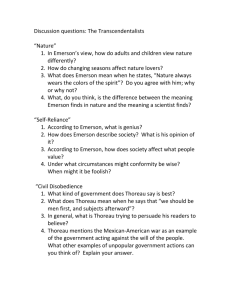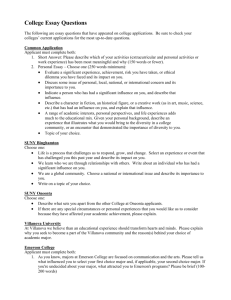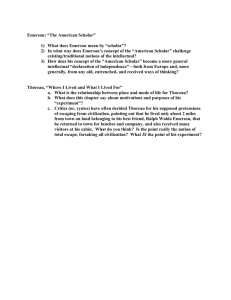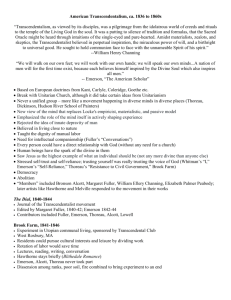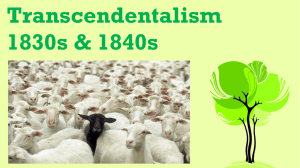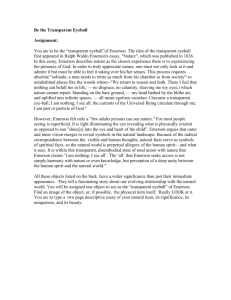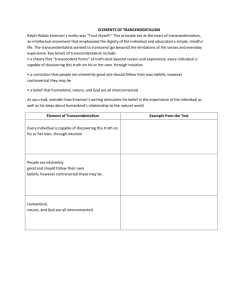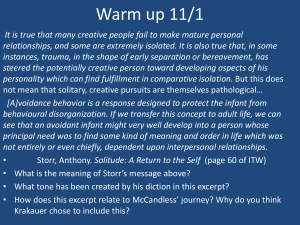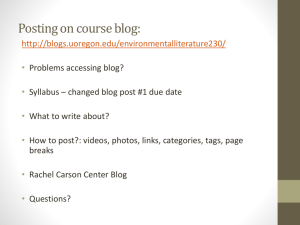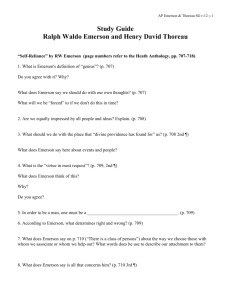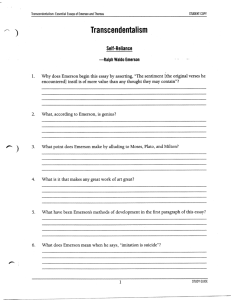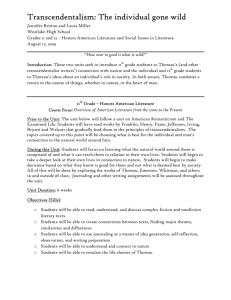American Literature: The Age of Romanticism Study Guide
advertisement
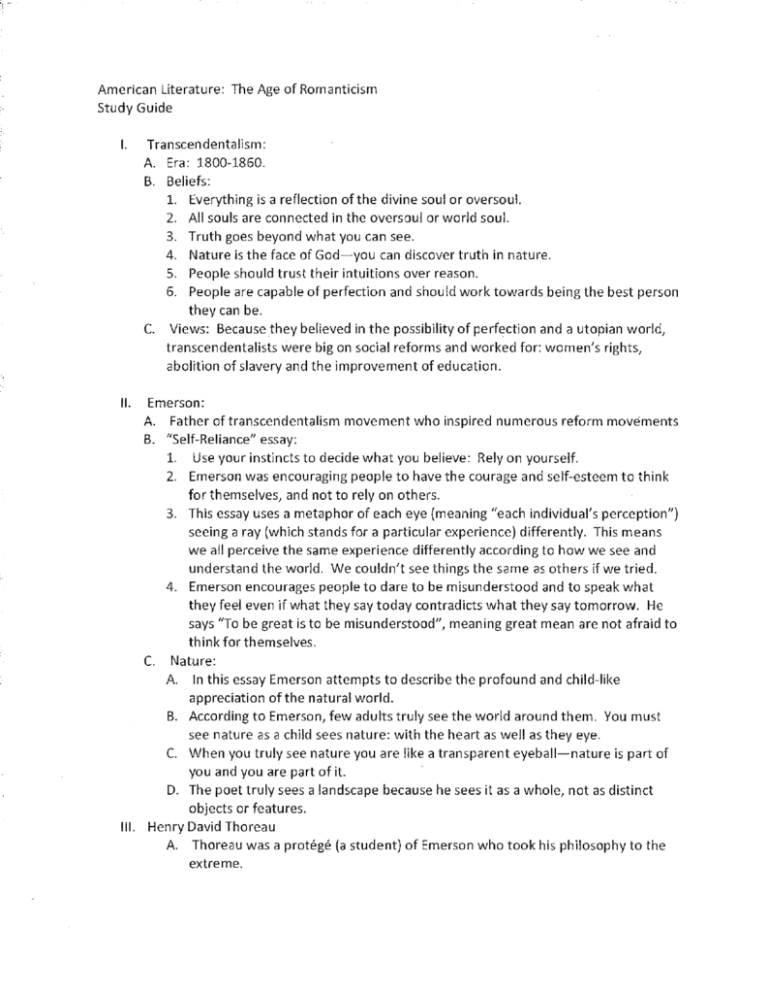
American Literature: The Age of Romanticism Study Guide Transcendentalism: A. Era: 1800-1860. B. Beliefs: 1. Everything is a reflection of the divine soul or oversoul. 2. All souls are connected in the oversoul or world soul. 3. Truth goes beyond what you can see. 4. Nature is the face of God--you can discover truth in nature. 5. People should trust their intuitions over reason. 6. People are capable of perfection and should work towards being the best person they can be. C. Views: Because they believed in the possibility of perfection and a utopian world, transcendentalists were big on social reforms and worked for: women’s rights, abolition of slavery and the improvement of education. II. Emerson: A. Father of transcendentalism movement who inspired numerous reform movements B. "Self-Reliance" essay: 1. Use your instincts to decide what you believe: Rely on yourself. 2. Emerson was encouraging people to have the courage and self-esteem to think for themselves, and not to rely on others. 3. This essay uses a metaphor of each eye (meaning "each individual’s perception") seeing a ray (which stands for a particular experience) differently. This means we all perceive the same experience differently according to how we see and understand the world. We couldn’t see things the same as others if we tried. 4. Emerson encourages people to dare to be misunderstood and to speak what they feel even if what they say today contradicts what they say tomorrow. He says "To be great is to be misunderstood", meaning great mean are not afraid to think for themselves. C. Nature: A. In this essay Emerson attempts to describe the profound and child-like appreciation of the natural world. B. According to Emerson, few adults truly see the world around them. You must see nature as a child sees nature: with the heart as well as they eye. C. When you truly see nature you are like a transparent eyeball--nature is part of you and you are part of it. D. The poet truly sees a landscape because he sees it as a whole, not as distinct objects or features. II1. Henry David Thoreau A. Thoreau was a prot~g~ (a student) of Emerson who took his philosophy to the extreme. Like Emerson, Thoreau believed that conforming to society caused you to lose your individuality. "Resistance to Civil Government" :[. The primary purpose for this essay was to encourage people to rebel against the Mexican War. 2. He is critical of the majority who make the rules because they have the most power, not because they are correct in their views. 3. He believes the best government is the least government. Governments derive their rights from the people; people don’t get their rights from the government. "Where I Lived, And What I Lived For" essay 1. This essay explains why Thoreau moved to the woods for two years and describes what he feels he learned from this experience. 2. He is highly critical of man’s attachment to technology and says our creations rule our lives, we don’t rule our creations. 3. An example he uses of the evils of technology is the railroad. He describes men as the "sleepers" (railroad ties) over which the train runs. He sees man as asleep to the fact that the technology is running over him.
